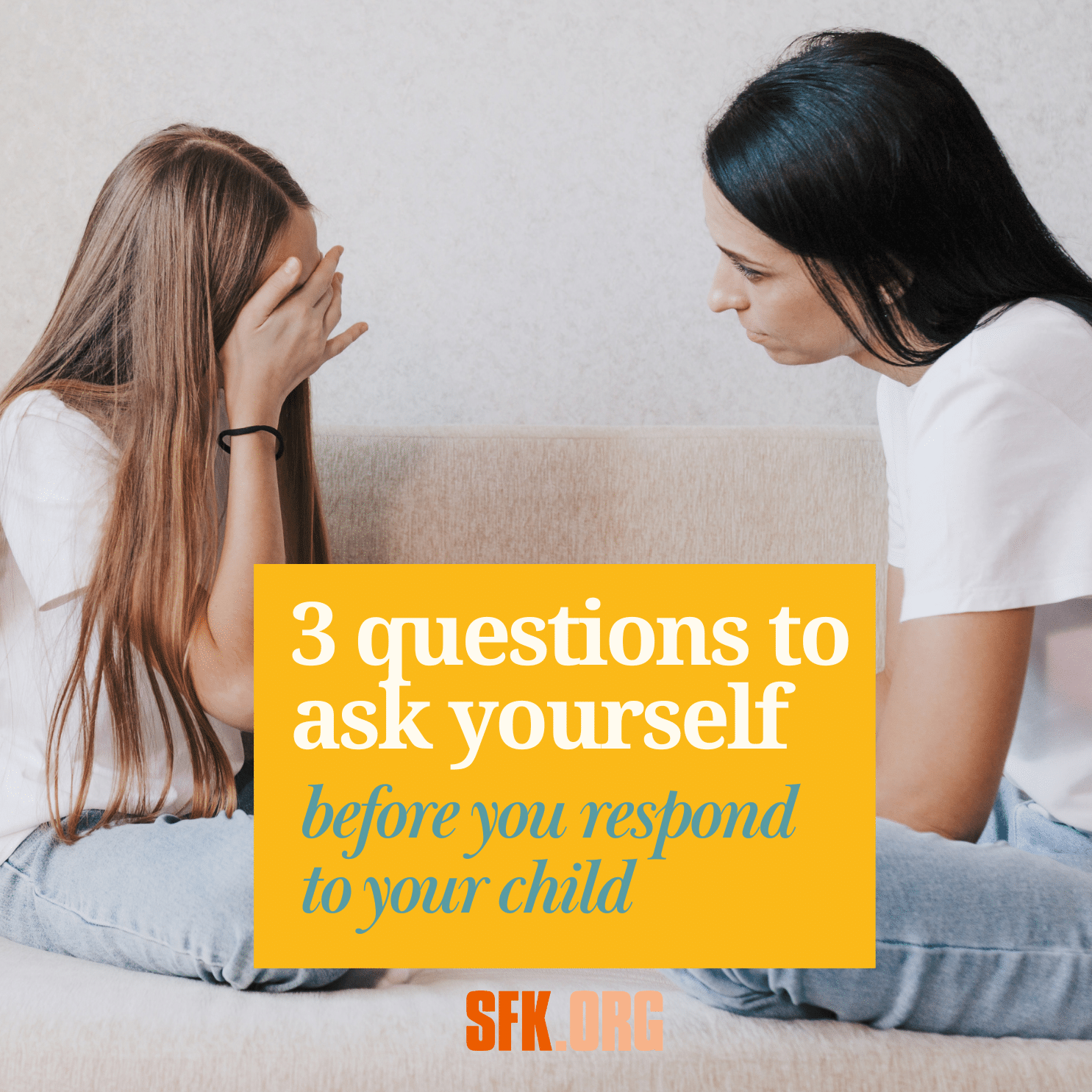How we communicate with our children profoundly impacts how they feel, think, and behave. Negative communication creates one of the most frustrating and toxic dynamics at home. It can blow things out of proportion, turn offensive, and create a separation where both parent and child feel isolated and angry.
Your child can feel rejected, misunderstood, and alone when your voice carries judgment, fear, anger, or disappointment. And your important message or advice can go unheard or backfire.
So before you respond to your child (unless in a life-threatening situation), pause and ask yourself these 3 questions:
- Will what I say empower or disempower my children?
- Is it going to bring us closer or create more distance?
- Can I separate my emotions from my child’s to give a clear opinion or advice?
Let your words and tone express respect and that you understand their challenges and are here to support them. And manage your own fear to avoid projecting onto your child.
Focusing on our connection with our children using conscious communication creates a home with less stress and more wisdom and love for our children and ourselves.






